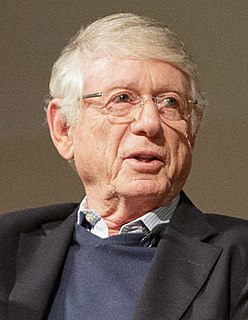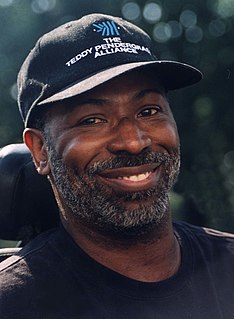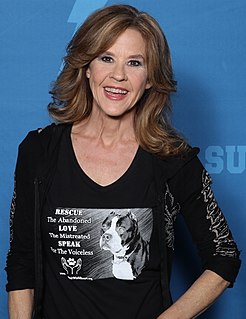A Quote by Ruth Jones
There were times when the first thing we'd talk about in the morning was 'Stella,' and the last thing we'd talk about at night was 'Stella.'
Related Quotes
I think the most note-worthy part is that Stella [Mozgawa] had joined the band two weeks before we started recording, so that really influenced the way that the album was recorded. It was really important for Stella and Jen[ny Lee Lindberg] to lay down the drums and bass first for most songs, because they were determining how they needed to lock in together, and Stella was still kind of learning and figuring out her parts.
President Carter famously said the hostages were the first thing he thought about in the morning and the last thing he thought about at night. It was a downright foolish thing to say, because it made the people holding the hostages realize that they had an awful lot of influence over the United States.
If you want to be an entrepreneur, it's not a job, it's a lifestyle. It defines you. Forget about vacations, about going home at 6 pm - last thing at night you'll send emails, first thing in the morning you'll read emails, and you'll wake up in the middle of the night. But it's hugely rewarding as you're fulfilling something for yourself.
When you talk about bad luck and you talk about the things that create those circumstances and you talk about what it takes to overcome those circumstances and naturally to me includes, you know, a faith, a very strong faith. It should because through good times and through bad times there is one thing that relieves.
I have a general feeling that writers and artists who are in this peculiar situation, of being a persecuted artist, all anyone ever asks about is the persecution. It may well be that's the last thing in the world they want to talk about. There were many years in which every journalist in the world wanted to talk to me, but nobody wanted to talk to me about my work. That felt deeply frustrating because I felt there was an attempt to stifle me as an artist. The best revenge I could have was to write.
On the contrary, it's because somebody knows something about it that we can't talk about physics . It's the things that nobody knows anything about that we can discuss. We can talk about the weather; we can talk about social problems; we can talk about psychology; we can talk about international finance gold transfers we can't talk about, because those are understood so it's the subject that nobody knows anything about that we can all talk about!
I think any information about any type of art form, it's always the right time. But since the last one, I could see there were many things about the culture of DJing that we don't really talk about. We don't really look at how the music is made, how it's conceptualized, how it's put together. We talk about the equipment and the software, but we don't talk about the reasons why we put the music together in the first place.




































